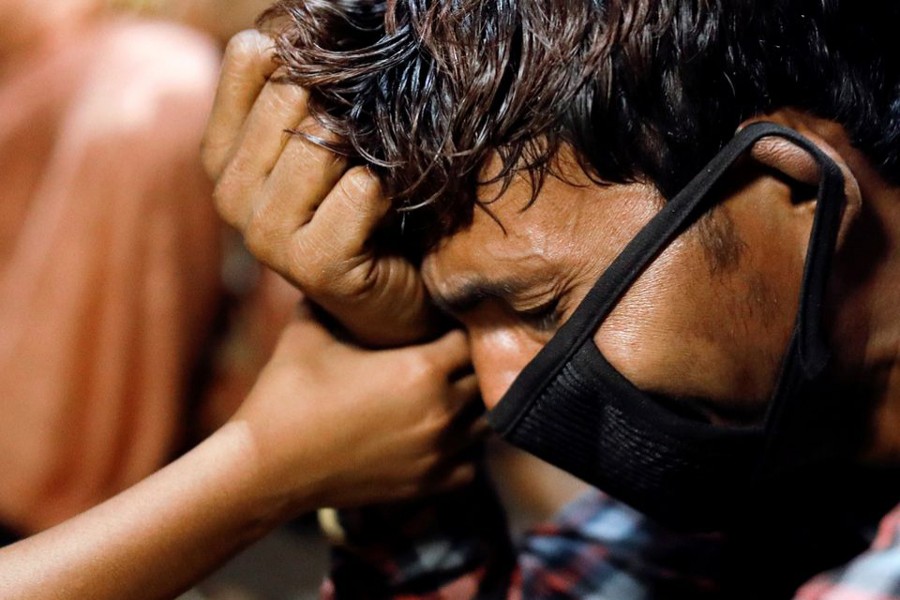India reported 1,761 deaths from Covid-19 overnight, its highest daily toll, with large parts of the country now under lockdown, as the country battles a second wave that has left people fighting for hospital beds, oxygen and medicines.
The world's second most populous country is grappling with its biggest public health emergency after it lowered its guard when coronavirus infections fell to a multi-month low in February, health experts and officials say.
On Tuesday, the health ministry reported 259,170 new infections, the world's highest daily rate. It has reported daily infections above the 200,000 mark for six days.
Total coronavirus cases in India are now at 15.32 million, second only to the United States.
Delhi, the capital city which has seen a surge in cases, began a six-day lockdown late on Monday that officials hope will slow the virus transmission and relieve the pressure on the health infrastructure.
People in Delhi and in towns of Uttar Pradesh, India's most populous state, put out desperate calls for help on Twitter, asking for assistance getting their families into hospitals. Others reported dire shortage of oxygen and the anti-viral drug Remdesivir.
"(A) monumental tragedy of epic proportions is unfolding across India. No hospital beds, no oxygen, no vaccination," said Manish Tewari, an opposition lawmaker, on Twitter.
India has lost 180,530 people to the disease, still quite a distance from the 567,538 deaths reported in the United States. But experts have warned that the official death toll does not reflect ground reality and that it could sharply rise as doctors struggle to cope with the pressure.
"The huge pressure on hospitals and the health system right now will mean that a good number who would have recovered had they been able to access hospital services may die simply because of this," said Gautam I. Menon, a professor at Ashoka University.
Several major cities are already reporting far larger numbers of cremations and burials under coronavirus protocols than official Covid-19 death tolls, according to the crematorium and cemetery workers, the media and a review of government data.
Bhramar Mukherjee, a professor of biostatistics and epidemiology at the University of Michigan, said many parts of India were in "data denial".
"Everything is so muddy," she said. "It feels like nobody understands the situation very clearly, and that's very irksome."


